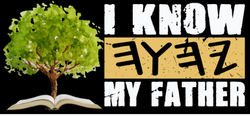Is Rap Culture Harming Our Youth? A Deep Dive into Hip-Hop's Impact
Watch the Full Video Lesson Here:
Introduction:
As the rhythm of hip-hop fills the airwaves, it’s hard not to feel its energy and creativity. But beneath the beats and lyrics lies a critical question: Is rap culture negatively affecting our youth, especially within the Black community? This blog takes a closer look at how hip-hop influences young minds, examining its impact on values, behavior, and societal perceptions.
Here are our favorite bible study tools. Click the link here.
The Generational Shift in Hip-Hop
Hip-hop has evolved dramatically since its early days, shifting from storytelling about struggles and dreams to themes that often glorify violence, materialism, and toxic masculinity. While the genre was once a platform for empowerment and cultural expression, today’s mainstream rap frequently promotes messages that can harm impressionable youth.
Consider the stark contrast: earlier artists like Tupac Shakur addressed social justice issues and personal struggles, whereas many contemporary tracks glamorize dangerous lifestyles. For instance, when teens repeatedly hear lyrics celebrating wealth obtained through illegal activities or violence as a means of respect, it can shape their understanding of success and power.
The consequences of these messages are not abstract—they manifest in real life. A recent tragedy involving a family caught in retaliatory gun violence highlights how glorified depictions of aggression can spill into communities. These incidents emphasize the urgent need for discussions about the themes dominating modern rap and their influence on young minds.
Normalization of Violence in Media
Mainstream media plays a significant role in shaping perceptions, and in many cases, violence has become disturbingly normalized—especially in depictions of Black culture. Music videos and lyrics often portray guns, gang life, and crime as everyday realities, desensitizing audiences to these issues and perpetuating harmful stereotypes.
What’s more troubling is the double standard in how violence is portrayed. Violent acts by white individuals are often treated as isolated incidents, while similar behaviors in Black communities are sensationalized and linked to cultural identity. This narrative creates a distorted image of Black families, casting them as dysfunctional rather than resilient and hardworking.
To combat these stereotypes, it’s essential to celebrate positive stories within Black communities. Highlighting achievements, strong family values, and community-building efforts can counteract the damaging effects of media representation and provide a more balanced perspective.
The Role of Parents in Cultural Guidance
Parents play a crucial role in helping their children navigate the complex cultural messages presented by modern rap. However, many parents today face challenges in addressing these issues. Fear of conflict or lack of understanding about the music their kids are consuming can make it difficult to have meaningful conversations.
In the past, parenting often extended beyond the immediate family, with elders and community members playing active roles in guiding youth. This collective approach to raising children provided accountability and support, fostering environments where positive values thrived.
Parents today can reclaim this role by fostering open, judgment-free dialogues with their children. For example, discussing the meaning behind specific lyrics or videos can help kids critically evaluate the messages they’re exposed to. Encouraging these conversations not only protects children from negative influences but also strengthens their ability to make informed choices.
Education and the Impact of Rap Lyrics
The influence of explicit rap music often extends into educational settings, where its impact on youth behavior becomes increasingly evident. School buses and classrooms filled with children listening to derogatory and aggressive lyrics create environments where harmful messages are normalized.
Parents and educators alike have raised concerns about the effects of such content. One powerful example involved a parent confronting a school principal over lyrics that promoted violence and misogyny. This sparked a critical conversation about the connection between music and student behavior, leading to greater awareness of the need for cultural accountability in educational spaces.
By addressing these issues, schools can work alongside parents to provide healthier alternatives, ensuring that music serves as a tool for empowerment rather than harm.
Censorship and Societal Double Standards
A glaring hypocrisy exists in how themes in rap culture are censored. Songs that promote violence against women or animals often face backlash and bans, yet tracks glorifying violence within Black communities frequently gain mainstream acceptance.
This double standard reflects deeper societal issues, where narratives of violence in Black neighborhoods are normalized while responses to that violence remain muted. For example, the same industry that censors certain offensive themes often turns a blind eye to lyrics that perpetuate harmful stereotypes about Black youth.
Artists hold significant power to shape culture and influence their audiences. Holding them accountable for the messages they promote is essential. By encouraging artists to prioritize uplifting narratives and positive role models, we can challenge the cycle of harmful messaging and inspire a generation to rise above societal expectations.
Conclusion:
The conversation about rap culture’s impact on youth is more than a critique—it’s a call to action. By fostering community dialogue, promoting parental guidance, and advocating for positive representation in music, we can steer young people toward healthier influences.
Hip-hop has the power to inspire, educate, and empower. When used responsibly, it can uplift entire communities. Together, we can ensure that rap culture evolves into a force for good, shaping a brighter and more hopeful future for our youth.

